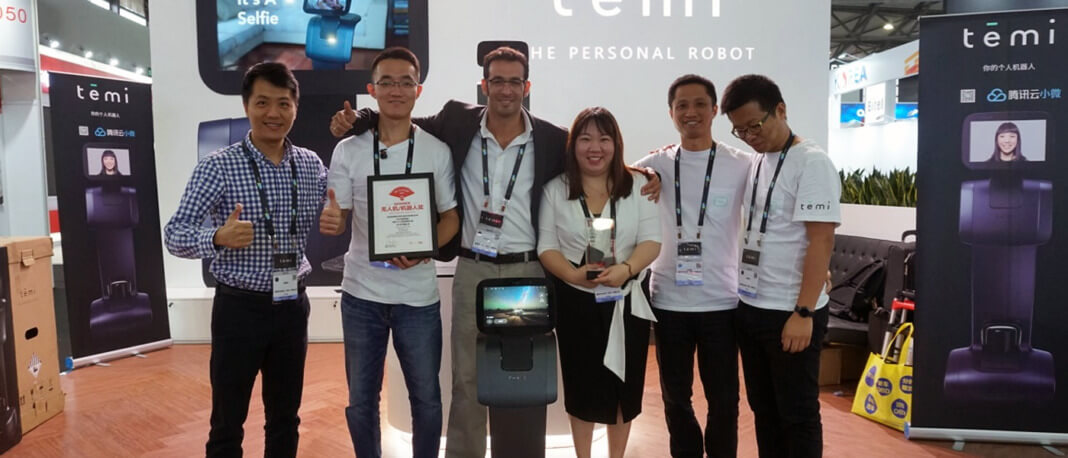Making friends and catching up with the ones you already have has become quite challenging due to the COVID-19 pandemic. It is even worse when for the elderly. That’s why Chui Dip-sai has been so happy and grateful for Temi, a service robot developed in Israel that has been a constant companion in nursing homes in Hong Kong.
The robot is quite easy to use, Chui told the Nikkei Asian Review. “I always talk to Temi, and don’t feel bored anymore,” he further stated.
Temi has a tablet-like screen plus a voice control powered by Google; it keeps Chui entertained with videos, music, and other diversions. It also has built-in cameras and infrared sensors that enable Chui to perform tasks such as delivering meals, disinfecting surfaces, and patrolling corridors.
Across the country, more businesses and individuals are turning to service robots to help them through the pandemic, which so far has infected over 81,000 people in China and caused more than 3200 deaths.
Looking forward, after the rule of social distancing is eventually erased, the new love for servant robots could give developers a boost.
China’s service robot market was worth approximately US$2.2 billion in 2019, less than half that of industrial robots. Lagging product design and high price tags are the major reasons for the slow take-up rates. However, as the fear of coronavirus increases, many businesses seem to be considering service robots.
After a Chinese courier was diagnosed with COVID-19, Meituan Dianping, a Chinese food delivery company, took advantage of relaxed rules on the use of autonomous vehicles, and they are using them to deliver groceries to consumers. Domestic e-commerce platforms such as Alibaba Group Holding and JD.com have as well beefed up their driverless logistics services.
Robots are being used in most Chinese hospitals to collect saliva samples as well as deliver medicine to patients. They are being used even in remote areas such as Xinjiang.
In mid-2019, Tung Hing Automation, the distributors of Temi, had one order after every few days, but since the outbreak, they sell three to five robots every day. Roy Lim, the president of Ting Hing Automation, however, stated that they make enough robots to satisfy the demand.
Lim is confident that the demand for Temi robots will outlive the pandemic since most people will unlikely get back to doing everything manually again. He is also optimistic that the market will expand in other parts of Asia and Europe.
Other service robot developers, such as Yunji Technology backed by Tencent Holdings, have also noted the change in consumer’s attitude towards the robots.





